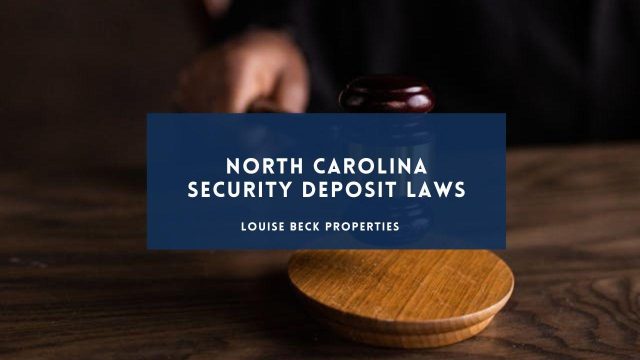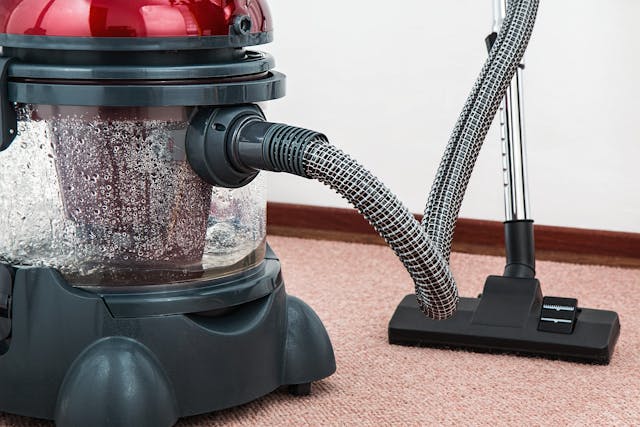
Key Takeaways
Know Your Limits – North Carolina caps security deposits at two weeks’ rent for week-to-week leases, 1.5 months’ rent for month-to-month, and two months’ rent for longer leases. Sticking to these limits helps you stay compliant and avoid legal trouble.
Understand What You Can Deduct – Security deposits aren’t a slush fund. You can use them for unpaid rent, excessive cleaning costs, damages beyond normal wear and tear, and certain lease violations, but keeping clear records is key.
Stay on Schedule with Returns – You have 30 days to return the deposit or provide an itemized list of deductions. If needed, you get up to 60 days to finalize the amount, but communicating with tenants during this time is always a good practice.
Handle Deposits Correctly – North Carolina law requires you to keep security deposits in a trust account or secure them with a bond. Proper storage ensures tenant funds are protected and keeps you legally compliant.
Are you aware of the latest requirements and regulations surrounding a tenant’s security deposits, renter’s security deposit, and rent in North Carolina? As a landlord, navigating these rent laws can sometimes feel like a maze, especially when it comes to ensuring compliance and protecting your rental property.
Whether you’re leasing a single-family home or an apartment complex, understanding the ins and outs of North Carolina’s tenant’s security deposit laws, including the renter’s security deposit amount and notice requirements, is crucial for maintaining a smooth rental operation and staying compliant with the law.
This article aims to provide you with a clear, detailed guide to help you manage a tenant’s security deposit, renter’s security deposit, and Carolina security deposit laws effectively, avoid potential legal pitfalls related to rent and cost, and ensure that both you and your residents are on the same page when it comes to rent, cost, security deposit amount, and notice requirements. Let’s dive into what you need to know to stay on top of these legal requirements.
FIND OUT WHY PARTNERING WITH US MAKES PROPERTY MANAGEMENT A BREEZE
What Is a Security Deposit?
A tenant’s security deposit is essentially a financial safety net that landlords require from residents when they move into a rental property. Its purpose is to cover potential damages, unpaid rent, or the cost of repairs if the resident doesn’t fulfill their responsibilities, as outlined by law, and is often referred to as the tenant’s security deposit in the lease agreement.
It’s like an insurance policy for landlords, helping to cover the cost of any unexpected issues during the lease while ensuring compliance with the law. If the landlord fails to notify the renter of any deductions from the tenant’s security deposit at the end of the lease, it can lead to disputes or legal challenges. Landlords must be diligent in providing the required documentation to avoid potential conflicts and ensure smooth transactions.
Think of a tenant’s security deposit as a way to ensure the rental property is cared for and that any issues, such as damage or excessive cleaning, are paid for if necessary when the lease ends.
The security deposit isn’t part of the rent, but rather a separate amount of money that’s held until the end of the lease and must be transferred properly. Property management services help landlords handle tenant’s deposits correctly, ensuring compliance with regulations and overseeing the transfer of funds while paying attention to every detail.
How Much Can You Charge for a Security Deposit?
In North Carolina, North Carolina security deposit law dictates some rules about how much you can charge for a security deposit. For residential leases, the amount can’t exceed two months’ rent. So, if your rental property rents for $1,000 a month, the most you can charge for the deposit is $2,000.
Landlords must pay careful attention to these limits to avoid overcharging a renter and ensure the proper transfer of funds, including conducting a walk-through inspection to assess any damages before finalizing the deposit return.

It’s important to stay within this limit because charging too much can create legal headaches under North Carolina law. This includes not only the standard tenant’s deposit but also any related fees outlined in the rental agreement.
Always ensure the amount you’re charging, including any fees, is reasonable and in line with the rent to avoid any disputes with residents or future legal troubles, especially by conducting a walk-through inspection to confirm any necessary deductions from the deposit.
Security Deposit Handling and Requirements
Once you’ve collected the security deposit, the law requires that it’s handled with care. North Carolina law doesn’t necessarily require you to put the deposit in a separate account, but it’s a good practice to keep it separate from your personal funds, as outlined in the rental agreement.
This ensures that it’s available when the time comes to return it to the renter. It’s all about transparency, avoiding hidden fees, and keeping things clear for both parties.
What Can a Security Deposit Be Used For?
The security deposit isn’t meant to be spent on regular upkeep or routine maintenance. It should only be used to cover certain situations that occur at the end of the lease, such as:
- Property Damage: If the renter causes damage beyond normal wear and tear, you can use the deposit to repair those areas (like broken windows or large stains on the carpet).
- Unpaid Rent: If a renter leaves without paying rent for the last month or two, you can apply part of the security deposit to cover the unpaid balance.
- Cleaning Costs: If the property is left excessively dirty and requires professional cleaning, you can deduct the cost from the deposit. Remember, these deductions should be reasonable and documented—transparency is key in ensuring both you and the renter are on the same page.
FIND OUT THE ANSWERS TO ALL YOUR PROPERTY MANAGEMENT QUESTIONS
Return of Security Deposit: Timeline and Process
When it’s time to return the security deposit, timing is everything. North Carolina law gives you 30-60 days from the end of the lease to return the security deposit and address any deductions as required by law. As the owner, don’t just hand it back without thought—if you’re making any deductions from the rental unit, you must address the resident with an itemized list of those deductions.

This list must detail the charges for damages, unpaid rent payments, or cleaning costs, along with the amounts. If you fail to return the deposit within 30 days or don’t address the resident with an itemized list, the resident can sue you for the full deposit amount, plus any legal fees. So, keep track of dates and address the process carefully to avoid headaches later on.
Deductions from the Security Deposit: What is Allowed?
As a landlord and property owner, you can deduct from the security deposit, but there are limits to what you can charge for. The general rule is that the deposit should only be used for actual damages beyond normal wear and tear. Here’s a quick breakdown of what you, as the owner, can and can’t deduct:
- Allowed deductions: Unpaid rental payments, significant property damage (like holes in walls or broken appliances), and cleaning costs if the place is left in bad condition.
- Not allowed: Regular maintenance or minor wear and tear like fading paint, minor carpet stains, or small scuff marks on the walls. It’s essential to keep this in mind, as making unreasonable deductions can cause disputes and even legal trouble. Be sure to only deduct for issues that are truly out of the ordinary and can be backed up with documentation.
Itemized List of Deductions
If you’ve made any deductions from the security deposit, you’re required to provide the resident with a notice and an itemized list of those deductions.
This list should be detailed enough to show exactly what the deductions are for and how much you’re charging for each item (e.g., $100 for carpet cleaning, $150 for a broken window), and it’s a good idea to keep a copy for your records, which can also be helpful if you ever need to involve an insurance company for any claims related to the property.

The itemized list should be provided within 30 days of the end of the lease, along with the remainder of the deposit, if any, for the rental unit.
This transparency helps avoid confusion and ensures that your residents know exactly what they’re being charged for regarding their rental unit. Also, having a clear itemized list protects you if they dispute any of the charges, and it can be useful if you need to contact an insurance company to address damages or claims related to the rental unit.
Security Deposit Disputes: How to Avoid and Handle Them
Disputes over security deposits can happen, but there are ways to minimize the chances of them occurring. Here are some tips:
- Document everything: Take photos or videos of the rental property before and after the lease to show the condition it was in. This way, you’ll have solid evidence if any damage occurs.
- Be clear in your lease agreement: Outline exactly what residents can expect in terms of security deposit handling and deductions, so there are no surprises when it comes time for move-out.
- Communicate openly: If there are issues, let your resident know as soon as possible. If they’re aware of any potential problems, it’s less likely they’ll be caught off guard when you provide the itemized list.
- Handle disputes professionally: If a dispute does arise, try to work through it calmly and professionally. If necessary, be prepared to take it to small claims court. But remember, taking steps to avoid disputes in the first place is always the best route.
By keeping clear records, communicating well, and following the rules about deductions and returns, you can avoid most security deposit disputes.
If a disagreement does happen, handling it professionally will keep things on track and help maintain a positive relationship with your residents. However, if the landlord fails to provide the proper documentation or fails to follow legal procedures, it can lead to unnecessary complications and potential legal action from the tenant.
LEARN MORE ABOUT OUR PROPERTY MANAGEMENT SERVICES
Bottom Line: Secure Your Peace of Mind With Louise Beck Properties
Handling security deposits can be tricky, but with the right knowledge and approach, it doesn’t have to be a burden. Louise Beck Properties is here to help you navigate North Carolina’s security deposit laws with ease, ensuring compliance while protecting your investment.
Reach out to our team today to discuss your options and find out what’s best for your rental property management needs. Let us take the stress out of managing your rental property!





